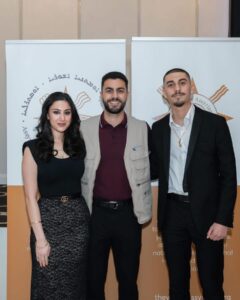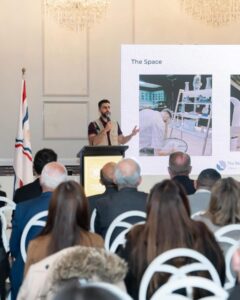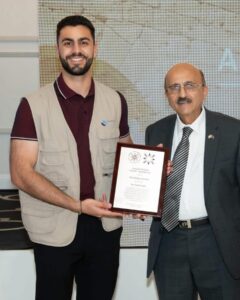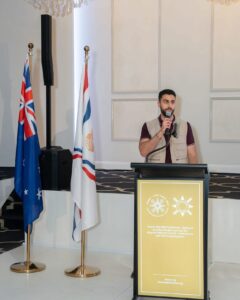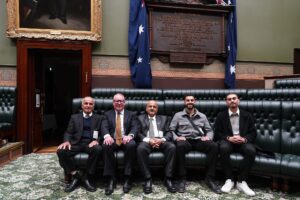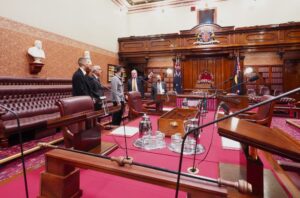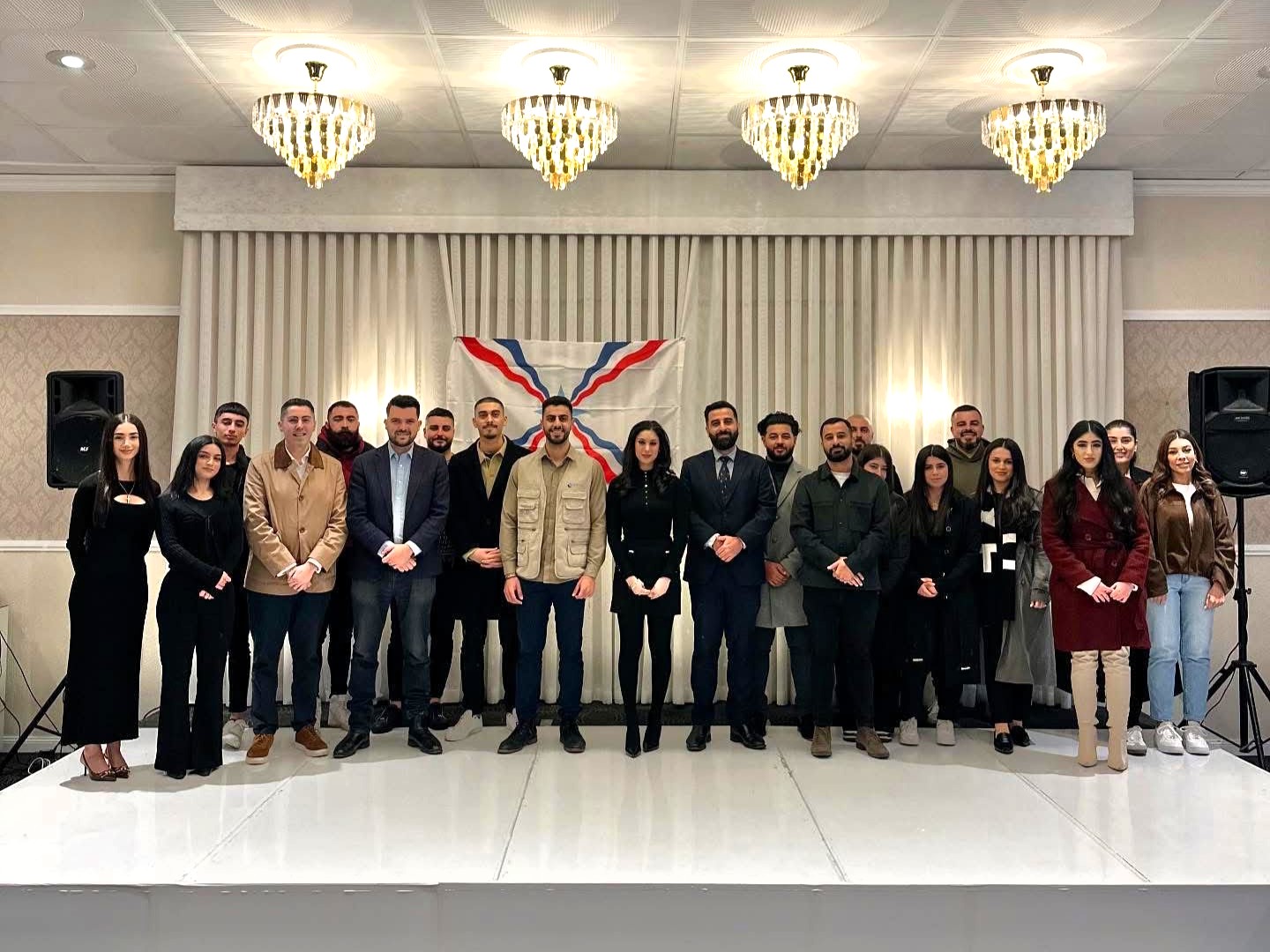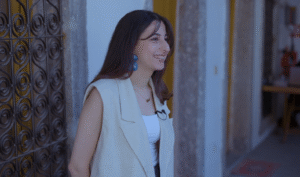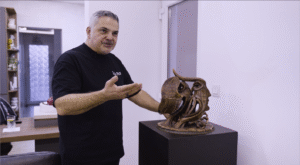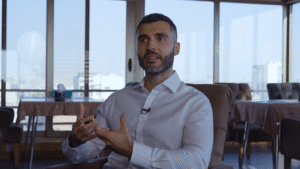On June 30, 2025, Daniel Sada, an Assyrian-American from California, stood before a packed hall at the Eden Venues in Sydney, Australia. Invited as the keynote speaker for the Assyria Day 2025 Conference, jointly organized by the Assyrian National Council – Australia Inc. (ANCA) and The Young Assyrians (TYA), Sada shared a deeply personal account of return, identity, and purpose.
Eight months earlier, Sada had relocated to Erbil, in the Kurdistan Region of Iraq, as part of a growing movement to bring Assyrian Christians back to their ancestral homeland. He joined The Return which supports the reintegration of Iraq’s Christian community, one of the oldest surviving Christian populations in the world.
Speaking to a room filled with young Assyrians, Sada described what it means to return, not just geographically, but spiritually and culturally. “I left behind a life of comfort,” he told the audience, “because I couldn’t ignore the call any longer. We always speak of our history, our suffering, our loss. But we also have a duty to write the next chapter. That starts with going home.”
Sada’s message resonated with a generation navigating the tension between diaspora life and ancestral belonging. His talk offered a rare firsthand glimpse into daily life in Erbil as a returnee: from helping newly arrived families navigate property disputes, to running youth workshops and organizing church restoration projects. He spoke about the challenges, spotty electricity, bureaucratic roadblocks, lingering security concerns, but also of the quiet rewards: hearing Aramaic in the streets, breaking fast with neighbors during Lent, and helping families plant new roots in old soil.
“The goal of return isn’t just population numbers,” Sada emphasized. “It’s cultural survival. It’s justice. And it’s healing.”
His keynote, delivered with clarity and urgency, echoed the sentiments expressed just days earlier by Dilan Adamat, founder of The Return, in his address to the European Parliament in Strasbourg. Like Adamat, Sada underscored that the return of Assyrian-Chaldean-Syriacs to Iraq is not merely symbolic, it is existential. With over 90% of Iraq’s Christians now living in the diaspora, the window for meaningful repatriation is closing.
“The Assyrian identity will not survive in exile alone,” Sada warned. “We need to preserve it in place, in context, in homeland.”
The audience, largely composed of youth, responded with enthusiasm and emotion. Many expressed a renewed commitment to cultural engagement and activism. The hosts, ANCA and TYA, praised Sada’s words as a catalyst for meaningful discussion and deeper involvement.
“We are honored to have hosted Daniel,” said a joint statement from the organizers. “His journey challenges us all to ask difficult questions about our role in Assyria’s future. This is not just about memory, it’s about movement.”
As Sada returned to Erbil following the conference, he carried with him more than applause. He brought home a sense of momentum, a spark he hopes will ignite greater awareness and tangible support for The Return’s mission. Whether in Parliament chambers in Europe or community halls in Australia, the message is gaining traction: Assyrians belong in Iraq. And they are ready to come home.
